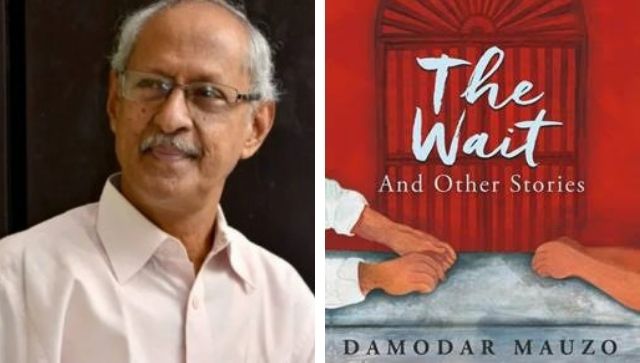Goa, for a large population, is a tourist destination. Its beaches invite everybody from near and far, and its locales are forever a favourite among Indian filmmakers. But there’s so much more to the state than those pretty highlights. And that’s where Damodar Mauzo places his stories. He’s not totally unconcerned with the tourists that flock to the numerous historical sites, though. However, he mostly focuses on the locals and their travails. There’s an afternoon nap-like quality to his characters – they’re laid-back and not too worried about the future. Does the clock run at a slower pace there? Mauzo’s tales in his latest collection, The Wait And Other Stories, can be digested quickly. It can even be tagged as a metro read despite not revolving around a grisly murder and its investigation.
The slim volume mainly takes a look at men who belong to different religions and castes. And there’s always a twist ending that resembles the kind that you’d find in the world of O. Henry’s whimsical narratives.
The title has been grabbed from the opening story, The Wait, where a man yearns to reunite with his girlfriend, who’s been badmouthed by his sister. It’s a love story in every which way you think about it, but it’s bereft of any form of romance. This may be partly due to Mauzo’s commitment to showing you something deeper that doesn’t rise to the surface in the opening paragraphs. There’s another couple in the story through which the writer tells us that a house needs to have at least two bedrooms – one for the newlyweds and the second one for the parents. Love cannot stand on the legs of affection and appreciation alone. Mauzo, also, concerns himself with the different sorts of things that the parents pass on to their children. These involve the seeds of prejudice that are sown in the minds of the young, too. In The Coward, a father disses his son’s friend, Bindhaas, as the latter is from a lower caste. The son may not be able to untangle the knots of casteism on his own yet, but he still considers his pal to be a hero, as he can easily catch a snake and whirl it around his head like a merry-go-round and fling it away. Snakes are not the only creatures that Bindhaas has no problem with. He knows how to catch frogs, as well. And he can bring down two mangoes with one stone. Isn’t he amazing? In Burger, a beef burger causes much worry to a school-going Christian girl, and, as a result, she spends sleepless nights. It’s the sweetest story in the collection and it brings out the innocence of children. Aren’t kids, after all, blank canvases? They go in the direction they’re advised to. The responsibility of shaping their views inevitably falls on us. And while Mauzo doesn’t sanitise the religious barriers anywhere, he doesn’t dip his characters in the ink of political correctness, either. They are presented as they are – naïve, cunning, affable, playful, and even brave. The two stories that made me think a lot are The Aesthete and The Next, Balakrishna, in which the protagonists measure the worth of their respective spouses in terms of their beauty and skin colour. These are strong formulas that emit strong flavours since fairness creams are a big hit in South Asia. Again, Mauzo doesn’t provide a one-size-fits-all solution here. In fact, there are no solutions, so to speak. The Aesthete keeps taking dark turns and gently unravels the power of attraction. Of course, it isn’t always skin-deep, but sometimes it’s just that and nothing else. And, if I have to add some points, I’d say happy relationships cannot be sustained on the promise of ever-lasting youthfulness. Our bodies and thoughts change with age and consumption of knowledge – and disinformation. We’ll have to waddle out of the muck and march ahead. Ah, now that I have mentioned knowledge, I can finally turn the table towards Yasin, Austin, Yatin, which is my favourite. It’s a simple story about a cab driver who borrows names from the religions of his passengers. If the passenger is a Hindu, he becomes Yatin, and if it’s a Muslim, he’ll introduce himself as Yasin. And the name Austin is specifically reserved for foreigners. This shape-shifting driver is so clever that he praises and criticises everybody, from the Portuguese to the Hindutva brigade. He seems to follow the “different strokes for different folks” policy. His intention is to make hay while the sun shines. I won’t be surprised if he becomes a politician in Mauzo’s next story. Xavier Cota, who has translated the stories from Konkani, makes the prose seem seamless. It flows without glitches for the most part. But though the collection offers a variety of endings, all the last lines don’t feel satisfactory – many might startle you, however, some might just whisper to you. Karthik Keramalu is a writer. His works have been published in The Bombay Review, The Quint, Deccan Herald and Film Companion, among others. Read all the Latest News , Trending News , Cricket News , Bollywood News , India News and Entertainment News here. Follow us on Facebook , Twitter and Instagram .
)